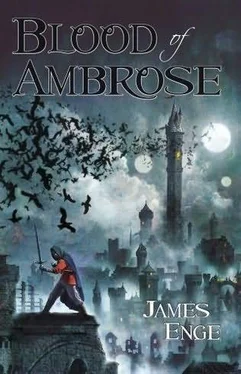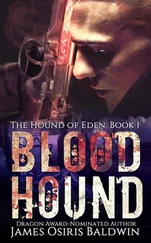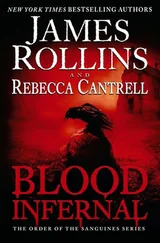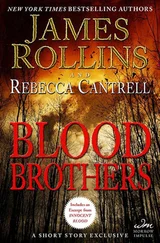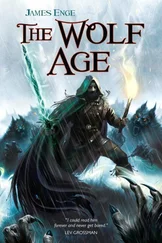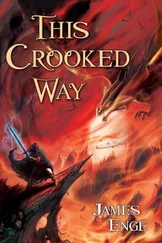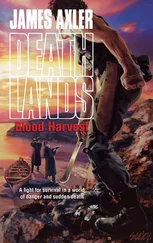Now he heard from a hallway attendant (Thoke, in fact) that Morlock had gone down to the stables.
He found all of them there: the two vocates, Jordel and Aloe; Masters Wyrth and Morlock; and Ambrosia. They were crowded around a horse- Velox, it looked like, and Morlock was laughing his raspy crowlike laugh.
"What's the joke?" he asked as he and his bodyguards joined the group. Anything that made Morlock laugh had to be pretty funny.
Morlock, still smiling, handed him a scrap of paper. "This was on Velox's saddle when he wandered back this morning."
It was a note written in the secret speech.
Morlock-
Your horse keeps running away. Screw it and you-I'm walking from here.
Good fortune.
Baran, Vocate
"Poor old Baran was never much of a horseman," Jordel remarked. "Although his first job-"
"Spare us your memories of manure this once, Jordel," Aloe interrupted. "I suppose we had better report back to the Graith-now that our patient is back on his feet again. Any messages for your former peers, Morlock Exile?"
"My love to Noree, of course," Morlock said mildly.
Aloe shot him a golden glare; she turned and walked off without another word to any of them.
"What was that all about?" Lathmar wondered.
"Oh, Noree never liked Morlock here much," Jordel explained. "Thought he should have been kicked out of the Wardlands before his parents were born-was always looking at him askance."
"No, I mean-" Lathmar began, and then suddenly reflected that Aloe's behavior reflected a disagreement with Morlock that was probably none of his business. "Never mind."
"I never do, but I'd better try to catch her up. I said my good-byes to you all when I thought we were going to die, so I won't cheapen them by repetition." He waved casually and walked off after Aloe. Lathmar never saw him again.
"Guards," Lathmar said without looking at them, "stand away." When they had, he broached his problem to the Ambrosii and asked their thoughts.
Ambrosia heard him through, though nothing he said seemed to surprise her. When he had finished, she said, "Well, if I were you, Lathmar, I'd find Morlock and me guilty of some dreadful but not very specific crime and give us ten days' law to leave the city."
"That's not funny," Lathmar said impatiently.
"I assure you, I find it far from funny. But I know a little something about this business of governing an empire-not one of the Two Arts, perhaps, but a useful trade all the same-and that's what I think the situation requires. It won't be the first time I was kicked out of Ontil, you know."
"What …what do you suggest?"
"How about lese naajeste-an offense against the monarch's dignity? It's convenient, hard to define, and quite serious-as you reminded me at supper one night."
Lathmar nodded slowly. "Well. May I ask when you traitorous dogs will be fleeing from my justice?"
"We're packed," Morlock said simply.
"Get the hell out then!" Lathmar shouted. "Who the hell needs you! I don't and no one else here does!" He was weeping uncontrollably. He knew it was wrong; he knew he was being stupid. Morlock took him by the shoulders, looked into his eyes, and turned away without a word. Lathmar clenched his eyes shut, and when he opened them he saw that Morlock had taken his horse and gone.
"Isn't anyone going with him?" he blurted.
"In a word, no," Wyrth said. "I've had enough of his endless yakking. Besides, I'm a master of Making, now. I've got to take my own path. Back to Thrymhaiam, I think-it's been a long time since I've seen home."
Lathmar wordlessly held out his hand. Wyrth took it, held it, and released it.
"See you," Wyrth said briefly, and left him alone with Grandmother.
"Hope had a dream about our mother," Ambrosia said, in the flat voice she always used when talking about her sister. Lathmar could not even imagine the accommodation they had made with each other (if, in fact, they had). "She says it's better if we aren't together-Morlock and, and us, I mean."
Ambrosia kissed him on the forehead and said, "Lathmar, you've done well, but you must do more-much more. Are you ready?"
"No."
But it was a lie and she knew it. She kissed him again and walked away, and he was alone at last in his kingdom, his empire. Even though it looked rather like a stable.
He dried his eyes and blew his nose. "Well, it's back to the books for me, I guess," he grumbled. "But, who knows? Maybe someday they'll call me Lathmar the Builder …or even Lathmar the Great?"
They were calling him those names already, but he didn't find out until long after he had earned them.
APPENDIX A
THE LANDS OF LAENT IN A.U. 330
Laent is a flat or shield-shaped land mass bordered by ocean to the west and south and empty space to the east; north of Laent is a region of uninhabitable cold; south of Laent is a large and largely unexplored continent, Qajqapca. Beyond that is believed to be an impassable zone of fire.
Along the western edge of Laent lies the Wardlands, a highly developed but secretive culture. It has no government, as such, but its borders are protected by a small band of Seers and warriors called the Graith of Guardians.
Dividing Laent into two unequal halves, north and south, are a pair of mountain ranges: the Whitethorn Range (running from the Western Ocean eastward) and the Blackthorn Range (running from the Eastern Edge westward). There is a pass between the two mountain ranges, the Kirach Kund. North of the Kirach Kund there are only two human cities of any note, Narkunden and Aflraun. The rest of the north is a heavily wooded and mountainous region inhabited by humans and others of a more or less fabulous nature.
The Whitethorn Range, by custom, forms the northern border of the Wardlands; the Graith of Guardians do not permit others to dwell there. The Blackthorn Range is divided between the untamed dragons and the dragontaming Khroi, a nonhuman race of unknown origin.
South of the Whitethorn Range is the empire of Ontil, sometimes known as the Second Empire. Around 2800, in the reckoning of the Wardlands (see appendix C: "Calendar and Astronomy"), Vraidish barbarians began to pass through the Kirach Kund, not merely to raid or kill but to conquer and settle. After several generations, one of the Vraidish war-leaders, called Lathmar the Old, established a united kingdom out of the divided Vraidish duchies. He was materially aided in his rise to power by magical assistance and counsel from Ambrosia Viviana, Merlin's daughter. Ambrosia later married Lathmar's son, Uthar I (called the Great), who called his kingdom the New Empire of Ontil and settled its capital at New Ontil (not far from the ruins of Old Ontil). The title of King (later, "King of the Two Cities," i.e., the Old Ontil and the new capital) was retained for the imperial heir. At the time of Blood of Ambrose, the Vraidish Empire of Ontil extended from the Whitethorn Range south, to all the lands surrounding the landlocked Sea of Vendh, as far as the southern coast of Laent (including the formerly independent kingdom of Kaen). On the west it was bounded by the Narrow Sea and the Grartan Mountains. The region between the Grartan Mountains and the Whitethorns was called the Gap of Lone by inhabitants of the unguarded lands. Inhabitants of (and exiles from) the Wardlands called it "the Maze," because of the magical protections placed on it.
Immediately south of the Blackthorns is a wooded region of extremely poor repute, Tychar. Farther south is the Anhikh Komos of Cities, Ontil's great rival. The largest Anhikh city, where the komarkh lives, is Vakhnhal, along the southern coast of Laent. Anhi may or may not extend its domain to the Eastern Edge of the world-accounts differ.
APPENDIX B
THE GODS OF LAENT
Читать дальше
